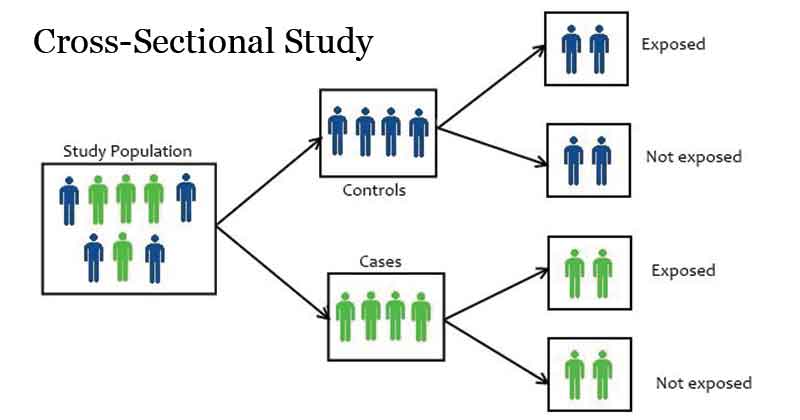What is a Cross Sectional Study?
A cross-sectional study is a type of observational research design commonly used in epidemiology and other fields to investigate the prevalence and distribution of a particular condition, disease, or characteristic within a population at a specific point in time. This type of study is often used to gather data on a wide range of health-related issues, such as the prevalence of diseases, risk factors, or the distribution of certain health behaviors.


Selected Cross Sectional Study
The following link directs you to a research paper conducted by K. Nikai and K. Nakachi. In this paper titled "Cross sectional study of effects of drinking green tea on cardiovascular and liver diseases", the objective was to investigate the association between consumption of green tea and various serum markers in a Japanese population, with special reference to preventive effects of green tea against cardiovascular disease and disorders of the liver.
Link to the PaperSummary of Paper
They conducted a cross-sectional study that revealed a strong connection between high green tea consumption and positive changes in blood components related to cardiovascular and liver health. Consuming more than 10 cups of green tea per day was linked to lower total cholesterol and triglyceride levels, higher levels of healthy high-density lipoprotein cholesterol, and reduced levels of unhealthy low-density and very low-density lipoprotein cholesterol, resulting in a lower risk of atherosclerosis. Green tea also lowered lipid peroxide levels in smokers and reduced certain liver markers like aspartate aminotransferase, alanine aminotransferase, and serum ferritin levels. These findings suggest that green tea might have a preventive effect against cardiovascular disease and liver damage.
They observed that as individuals grew older, they tended to consume more green tea, which might indicate that those who consumed more tea were part of a healthier group of people who lived longer. This suggests that their study's statistical adjustment for age might not fully account for this effect, and further research is needed to clarify this issue.
The study also indicated that green tea consumption was associated with reduced levels of lipid peroxides, which are harmful molecules linked to cell damage and cancer. The relationship between serum ferritin levels (an indicator of body iron stores) and lipid peroxides further supported the idea that green tea has protective effects against cancer development.